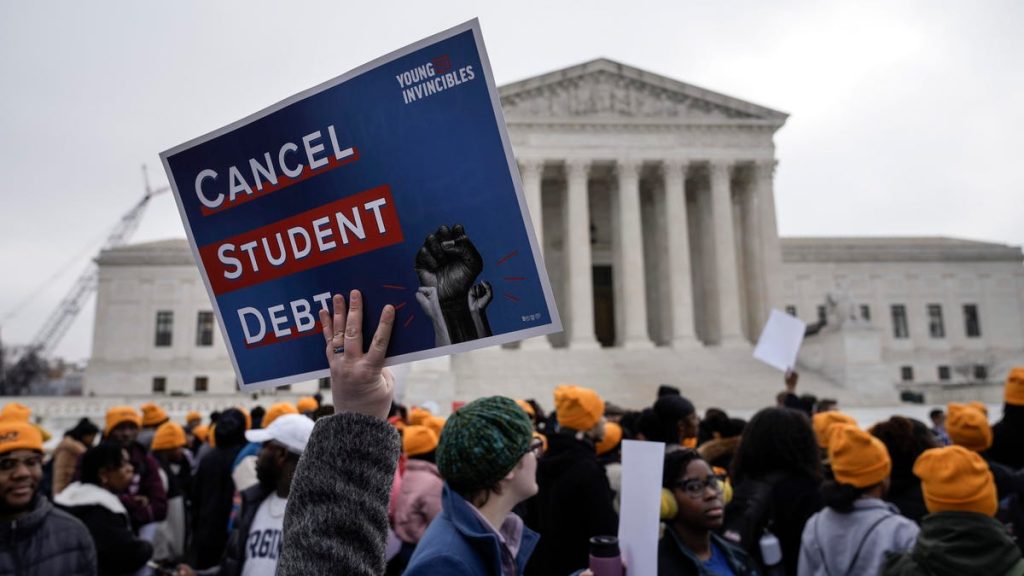The U.S. Supreme Court recently heard oral arguments in two challenges to the Biden administration’s student loan forgiveness plan. The plan, on hold since November when a federal district court in Texas struck it down, would have delivered up to $20,000 of forgiveness to millions of borrowers. Now, it appears increasingly unlikely that the plan, as structured, will ever reach implementation.
Additionally, the pause on federal student loan payments, first enacted by the U.S. Department of Education in March 2020 in response to the COVID-19 pandemic, could expire this year, meaning borrowers would be obligated to resume payments.
While the whole situation remains in limbo, it is essential for Americans who carry student debt to have a plan for if and when these payment obligations resume. Fortunately for them, the Secure 2.0 Act, which became law at the end of 2022, now allows employers to make matching 401(k) contributions on employees’ qualified student loan repayments.
While this provision has not received the same level of attention or fanfare as outright forgiveness, it could help millions of workers pay their student debt obligations without abandoning their retirement savings goals.
How It Works
According to a Senate summary, this part of the law is intended to assist employees who may be overwhelmed with student debt and, therefore, unable to adequately save for retirement. In other words, when a worker has to choose to pay their student loan over contributing to their 401(k) account, they may be missing out on available matching contributions from their employers and essentially missing out on free money. This law will help remedy that by giving qualified employees another avenue to tap into the employer’s contribution.
It allows the employer to make matching contributions for qualified student loan payments to a 401(k) plan, 403(b) plan, or SIMPLE IRA. Additionally, it lets government employers make matching contributions in a section 457(b).
It can be applied to employees who do not contribute earnings to a qualified retirement plan. It can also allow employees with student debt who contribute below their employer’s full match to receive more or all of that match. For example, an employee contributes 2% of their salary to their 401(k), while the employer offers up to a 3% match. That employee would only receive a 2% match from the employer. That employee may be eligible to receive the full 3% match while maintaining or even reducing their 2% contribution.
Why it Matters
Student debt and inadequate retirement savings are among working Americans’ most significant perils. This eloquent portion of the law recognizes that and provides an astute avenue for employers to ease that burden for their employees.
According to U.S. News & World Report data, recent college graduates’ average student loan debt is nearly $30,000. In addition, the national student loan debt surpassed $1.6 trillion in 2022, according to a Federal Reserve Bank of New York report.
On the retirement side of the equation, Fidelity recently released a stunning report showing that 401(k) accounts with at least $1 million in retirement savings fell from 442,000 in 2021 to 299,000 in 2022. Furthermore, average 401(k) balances dropped 20.5% in 2022.
Looking at the current economic environment, with stubborn inflation outpacing wage growth, is also essential. “Despite wage growth reaching 6.7 percent in the summer of 2022, it has not been enough to curb the impact of even higher inflation rates,” according to a report from the Statista Research Department, which showed inflation reaching a 40-year high of 9.1% during that period.
It is also important to note the national debt surpassed $31.4 trillion in January as the U.S. reached its debt limit, which will likely result in a tense showdown on Capitol Hill, all while the American economy begins showing signs of a slowdown.
In this uncertain environment, planning is essential. Therefore, it is wise for workers carrying student debt to speak with their employers and financial advisors about their options. While the provision allowing employers to offer 401(k) matches on student loan payments is undoubtedly not a fix-all solution, it is poised to provide meaningful relief to those who take advantage of the program.
Brian Menickella is the founder and managing partner at Beacon Financial Services, a broad-based financial advisory firm based in Wayne, PA.
Securities and Advisory services offered through LPL Financial, a registered investment advisor. Member FINRA/SIPC.
This material was created for educational and informational purposes only and is not intended as ERISA, tax, legal or investment advice.
Read the full article here




